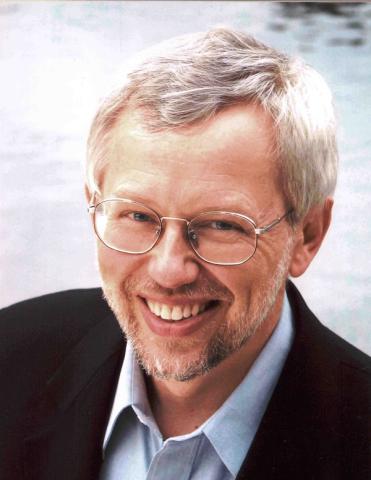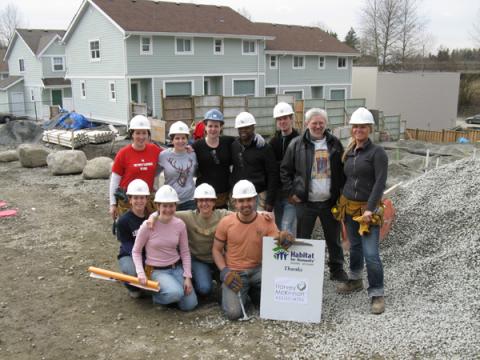
By his own estimation, the author of 2008’s 11 Questions Every Donor Asks and founder of Canadian fundraising consultancy Harvey McKinnon Associates, has raised “a couple hundred million dollars” for organizations as diverse as Amnesty International, the Canadian Cancer Society, the Ontario March of Dimes, the Sick Kids Foundation, Ecojustice, Oxfam Canada, Greening Australia, and even the Vancouver Aquarium.
Based in Vancouver and Toronto, Harvey McKinnon Associates doesn’t just specialize in getting these non-profits money, but in building relationships and direct response. Although he and his 17 staffers employ a number of techniques — direct mail, monthly giving, legacy marketing, development audits and others — to raise money for the organizations that hire them, McKinnon, a former Oxfam Canada senior development officer, says there are three key rules to remember when engaging potential donors.
“Talk to people the way they want to be talked to, and through the means they want to be talked to and communicated with. Secondly, be respectful. And a core thing about organizations — and they don’t always do this — is to look for long-term value in a relationship. Good fundraising is essentially building long-term relationships based on mutual trust, respect and time,” he tells Samaritanmag.
This wisdom comes from more than 30 years of fundraising experience by McKinnon, who says that touching potential donors personally with your story is the surest way to evoke your objective.
“If you can tap into people’s emotions, they will send you money,” says the Vancouver-based McKinnon, who formed his for-profit company in 1989. “People only give for emotional reasons, so you have to move them. So if you’re telling the story of a children’s hospital, it’s easy to tell an emotional story that motivates people to want to give. The skill is to be able to inject emotion into charities that aren’t dealing with children or animals. When you can do that, people want to give you money.”
He says it’s not such a hard sell provided that you can properly justify their donation.
“I think people are motivated to help others; it’s wired in our DNA,” McKinnon explains. “It’s a combination of giving them emotional reason to do so; showing them that their donation will have a positive impact and then making it easy for them to give.”
McKinnon’s own story began in the 1970s when he was a student at Dalhousie University, in Halifax, Nova Scotia, from 1971 to ’78, where he earned a BA in English and did graduate work in sociology.
“I knew next to nothing about the world and I had met some people from South Africa,” he recalls. “I was appalled by the racial structure in the country, so I started an anti-apartheid group on campus.
“Through that, I met people at Oxfam who were doing a lot of anti-apartheid work, but on a much bigger scale. So I ended up volunteering 20 to 30 hours a week while I was in grad school. I really liked them, and realized that for charitable organizations, they really needed people raising money. Other people seemed to dislike it; I didn’t mind it. I ended up developing skills in that area.”
In 1976, at the age 23, he joined Oxfam’s executive board of directors. During the next 10 years, he visited war zones in Central America — Nicaragua and El Salvador. “It was scary, and it was the kind of thing that, now that I have children, I would probably not choose to do,” he admits.
He also spent time in Mozambique, and found a commonality between citizens of all war-torn nations.
“Even in desperate circumstances, you see people working really hard to try and take care of their families, and that’s quite inspiring,” says McKinnon. “I was in Mozambique during the war, and I met people and refugees who went through incredible suffering, and yet were mostly really positive and delighted to have people they didn’t know helping to work with and rebuild their lives.
“So you see a lot of horrible things, but you also see many great things and inspiring things, and people who in many cases have next to nothing and yet they’re still happy, and they’re still doing the best for their families and trying to build their communities. I think a lot of people who have spent time in the developing world really get energized by what they see there, and I was one of them.”
“Even when I was in a senior position at Oxfam, three-quarters of the people I hired were former volunteers because we knew they were passionate about the cause,” he states.
“They were volunteering for no money because they believed in it and you could assess their skills properly. But again, if they were fairly competent people and they were passionate, they’re way better than people who look much better on paper, usually.“
In 1999, he published Hidden Gold: How monthly giving will build donor loyalty, boost your organization’s income and increase financial stability, “the first book on monthly giving,” he says. “Monthly giving is a system whereby people pledge $20 a month to a charity. When I wrote this book in the ‘90s, not many organizations were doing it — either in the United States and even globally. It was underdeveloped, so I’ve been speaking at conferences all over the world on this. Often people come up to me and say, ‘Thanks for being there — it saved our organization’ or, ‘Now we have 25,000 monthly donors.’
“Thousands of people read the book and use it, so I think that I have had that positive impact on probably thousands of organizations. It’s pretty exciting to feel that I’ve had that kind of impact.”
More recently, he co-authored 2005’s The Power of Giving with Azim Jamal which has since been translated into 10 languages and is on sale in 12 countries (www.thepowerofgiving.org). He says it reached No. 1 on Amazon.ca and Barnes and Noble in the U.S., and No. 4 on Amazon.com.
Last year, Harvey McKinnon Associates earned 3 percent profit, says McKinnon. The company charges a flat fee for its services. “We never accept a percentage of the money we raise. We, like all members of the Association of Fundraising Professionals (AFP), consider that percentage fundraising is bad fundraising and unethical. It is not in the interest of the charity. The fees we charge card depend on the kind of work we do, but are generally flat fees or retainers. It’s all upfront so our clients know exactly what compensation we receive for our work,” McKinnon explains.
“We will give our clients the best advice we can, produce quality materials, and we have an excellent track record of meeting timelines. We help most of them set their budgets, based on the different initiatives we will undertake each year, and we’re pretty accurate, but we can’t guarantee exactly what will happen. There are too many variables — the economic climate, internal issues inside the organization, etcetera. That said, we’re very good at predicting income and expenditures.”
McKinnon says others can make an impact in the world of non-profit fundraising as well.
“There is no secret, other than I believe a lot of people could do this,” explains McKinnon. “You just have to be persistent and passionate and reasonably intelligent, — and the key thing is passion. If people feel passionate about a cause, they can raise money for it.”
The Rules of Good Fundraising
* Samaritanmag.com is an online magazine covering the good deeds of individuals, charities and businesses.